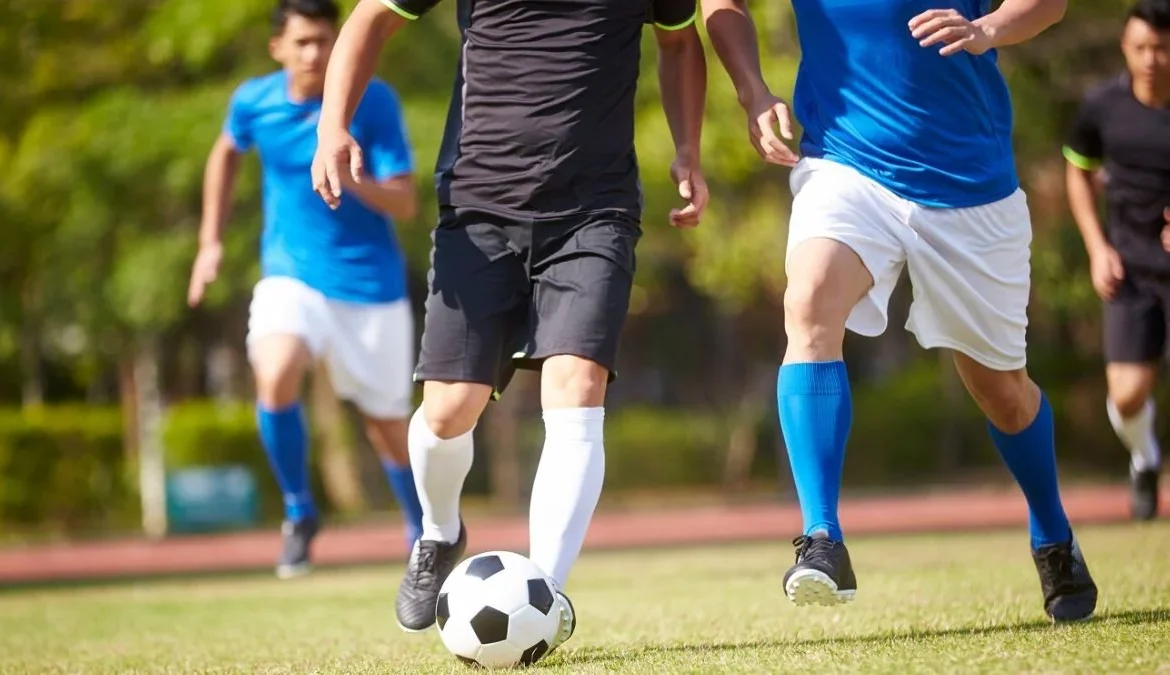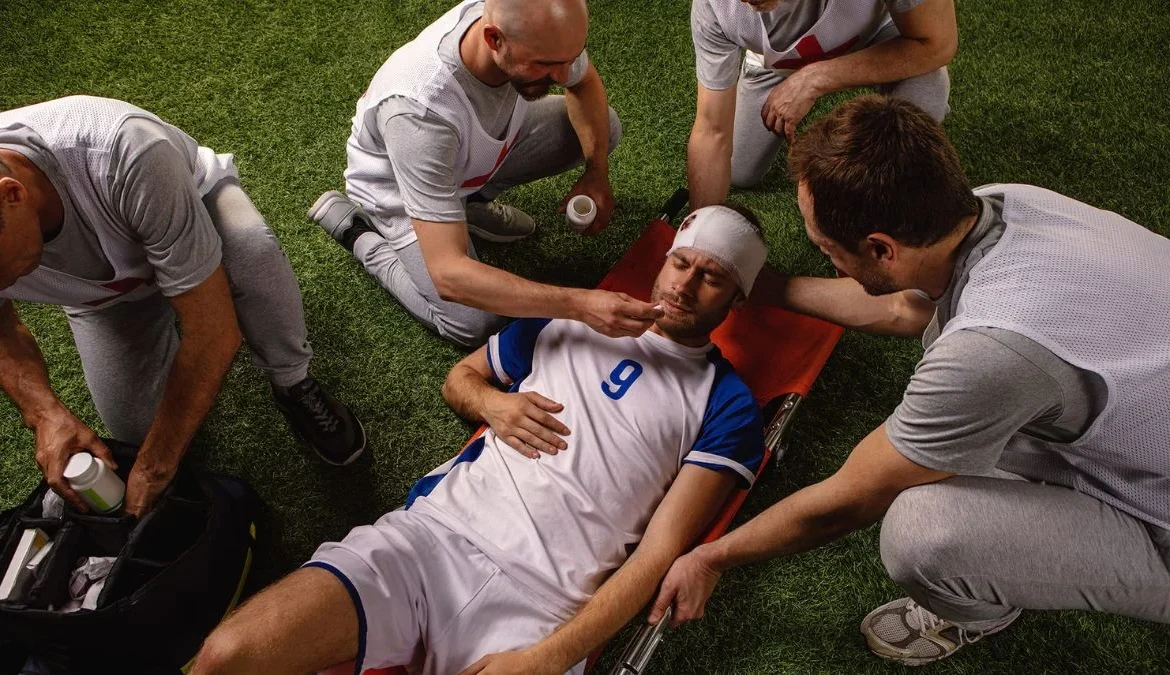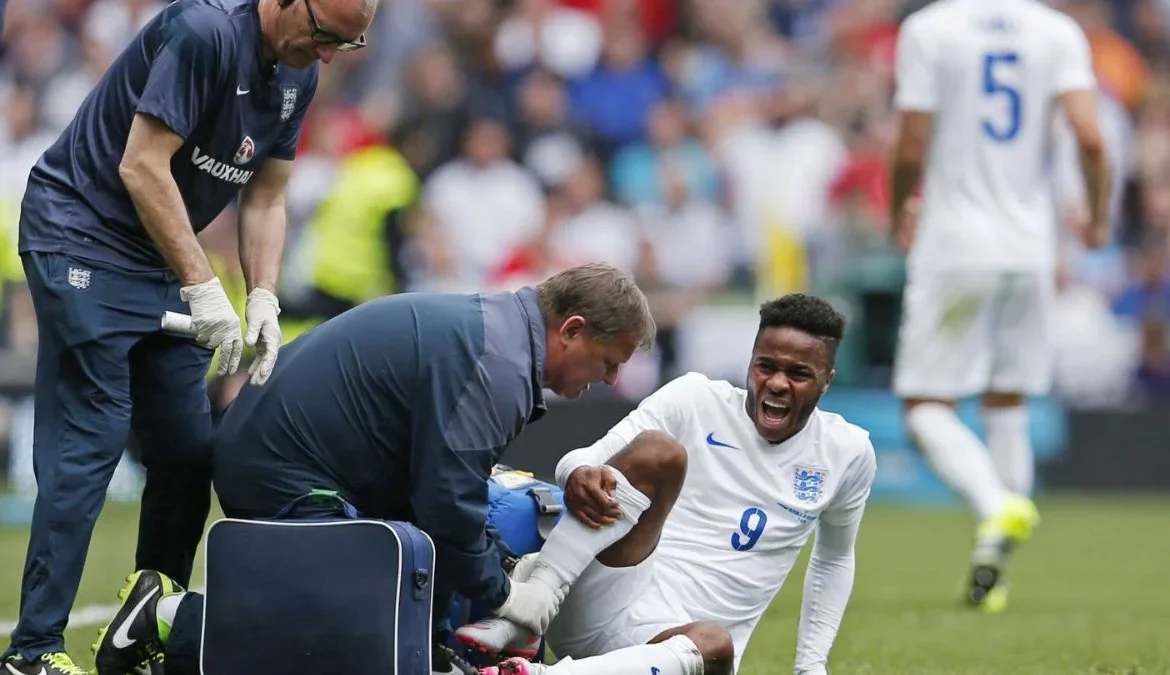Football can be an exciting sport to play, however injuries are unfortunately common in such a physical game.
If you have sustained an injury while playing amateur or professional football, this article will guide you through the process of making a football injury claim.
Furthermore, we will explore the types of injuries that are most common in football and what evidence you will need to support your claim. Likewise, we will also discuss factors that can affect the value of your claim.
Contents
- 1 Understanding Common Football Injuries
- 2 Evidence Needed to Support a Football Injury Claim
- 3 Factors Affecting Your Claim Value
- 4 Who Can Help With Your Claim?
- 5 Determining Fault for Your Injury
- 6 Settling Your Claim Without Litigation
- 7 Conclusion
- 8 Frequently Asked Questions and Answers
- 8.1 Question: What is the time limit for making a football injury claim?
- 8.2 Question: How do I prove my football injury was not my fault?
- 8.3 Question: What expenses can I claim for through a football injury claim?
- 8.4 Question: How long does it usually take to settle a football injury claim?
- 8.5 Question: Do I need a solicitor to make a football injury claim?
- 8.6 Question: What if my football injury prevents me from playing professionally further?
- 8.7 Question: How is compensation calculated for a football injury claim?
- 8.8 Question: Do I need to have medical insurance to make a claim?
- 8.9 Question: What if I initially thought my injury was minor but it worsened later?
- 8.10 Question: How do settlement payouts for football injury claims get paid?
Understanding Common Football Injuries
Certain injuries occur frequently in football that players should be aware of. Some of the most common include:

Muscle and ligament injuries
Pulls, strains, and tears to muscles like hamstrings are very prevalent in football due to the stopping, sprinting, and changing of direction involved.
Likewise, knee ligaments such as the anterior cruciate ligament (ACL) are prone to tears or ruptures from tackles or twists.
Subsequently, ankle sprains from tackles are also regularly sustained. Consequently, it is important to seek medical attention right away if you experience any pain or swelling in these areas after playing football.
Bone injuries
Stress fractures, particularly in the lower leg bones like the tibia, can develop over time from the high impact of football.
Additionally, more traumatic fractures may occur from direct impacts during collisions with other players.
Furthermore, broken toes are common from being stood on accidentally during games. Therefore, any persistent or severe bone pain after football should be reviewed by a doctor.
Head and neck injuries
Concussions, though sometimes hard to diagnose, can happen from heading the ball or clashes with other players.
Likewise, more serious spinal or neck injuries may potentially result from collisions too. Subsequently, it is important to be aware of concussion symptoms like headaches or dizziness that could arise after a blow to the head during a match.
Furthermore, neck pain or tingling in the arms or legs post-injury warrants prompt medical assessment.
Evidence Needed to Support a Football Injury Claim
To pursue compensation for a football injury, you will need to provide medical evidence that proves the injury was caused by playing the sport. The key evidence includes:

- Medical records – Reports from your GP and any specialists you saw detailing the nature and extent of your injury diagnoses and treatment.
- Diagnostic imaging – X-rays, MRI, or ultrasound scans showing any fractures or soft tissue damage.
- Witness statements – Accounts from teammates, coaches, or referees confirming how the injury occurred during a match or training session.
- Physio records – Logs of your rehabilitation sessions and progress made.
- Salary details – Proof of lost earnings if you were unable to work due to your football injury.
- Expert medical reports – Reports from independent doctors confirming the likely cause of your injury based on the medical records provided.
Gathering as much supporting paperwork as possible will strengthen your claim. Organizing all documentation chronologically can help present a clear picture of your injury circumstances and treatment journey.
Additionally, seeking legal advice early on can help ensure you obtain optimum compensation for your football injury losses.
Factors Affecting Your Claim Value
Several aspects will influence how much compensation you may receive for your football injury. These include:
Type and severity of injury
More serious injuries requiring extensive treatment and rehabilitation like broken bones or ligament tears will warrant higher payouts than minor sprains or soft tissue injuries.
Likewise, injuries causing long-term disabilities may receive greater compensation amounts.
Length of recovery
The longer you were unable to work or play football during recovery, the more your claim is likely worth to account for lost wages, training time, and potential career setbacks.
Claims for injuries requiring surgery or lengthy physio will generally have stronger financial cases.
Ongoing symptoms
Any pain, lack of mobility, or reduced function you continue to experience long after the initial injury provides grounds for further compensation.
Claims including prognosis for the potential need for future treatment can strengthen ongoing expense arguments.
Loss of earnings
If your injury prevented you from working or impacted your job, the cost of lost pay can significantly increase a claim’s value – especially for professional footballers. Salary or potential career earning records need to be evidenced.
Who Can Help With Your Claim?
Taking on an experienced personal injury solicitor ensures your claim has the best chance of success.
Specialist lawyers can manage all legal aspects like gathering medical records, calculating financial losses, negotiating with insurers, and pursuing court action if required.
Similarly, personal injury claims companies now offer no-win, no-fee services so legal costs never reduce compensation payouts.

Furthermore, players’ unions or sports governing bodies may assist members by providing advocacy or claim filing support too. Therefore, acting fast and seeking professional guidance is advisable when injury occurs.
Determining Fault for Your Injury
To strengthen your football injury claim, it is important to establish who or what was at fault for causing your harm.
If another player’s reckless tackle or challenge led directly to your injury during a game or training, they could potentially be considered liable.
Similarly, faulty equipment like damaged pitches, goals, or personal protective gear may provide grounds for including the sports club or governing body in your football injury claim.
Having eyewitness statements and video evidence if available can assist in proving negligence on another’s part contributed to your injury situation.
Settling Your Claim Without Litigation
The majority of football injury claims are settled through negotiation between the claimant’s legal representative and the insurer without needing court action.
Your solicitor will gather the full extent of your losses and medical position before making a settlement offer to the defender.
If agreement cannot be reached, some claims may proceed to court. However, litigation should always be seen as a last resort due to the time and costs involved.
Most footballers will prefer an expedited, agreed settlement that allows them to focus on recovery without the ongoing stress of a long legal process.

Therefore, keeping open communication with your lawyers ensures the best chances of concluding your football injury claim efficiently and satisfactorily.
Conclusion
In summary, sustaining an injury through playing football can be distressing both physically and financially.
However, by understanding the claim process, gathering strong supporting evidence promptly, and enlisting specialist legal help, players stand the best chance of fair reimbursement for losses resulting from their football injury.
Additionally, pursuing the right advice early allows maximum opportunity for the best possible compensation outcome.
Football remains a much-loved sport despite inherent injury risks. Protecting player welfare and rights to claim for football-caused harm through knowledge of this process maintains fairness in the game.
The key factors in football injury compensation have been focused on here to help provide clarity in unfortunate injury situations.
Please seek medical assistance rapidly for any newly sustained football injuries and consult a personal injury solicitor as required for claim assistance and advice going forward.
Frequently Asked Questions and Answers
Question: What is the time limit for making a football injury claim?
Answer: You usually have 3 years from the date of injury to submit a football injury claim in the UK. This allows time to fully assess the long-term impact and prognosis before pursuing compensation.
Question: How do I prove my football injury was not my fault?
Answer: Gathering witnesses, video evidence and expert medical opinions can help show your football injury claim was caused by someone else’s negligence rather than through your actions.
Question: What expenses can I claim for through a football injury claim?
Answer: Costs like medical bills, travel to treatments, over-the-counter medications, lost wages and other football-related financial losses can potentially be reimbursed through a successful football injury claim.
Question: How long does it usually take to settle a football injury claim?
Answer: Most uncomplicated football injury claims are resolved within 6-12 months. Complex cases involving severe injuries or legal disputes may take 1-2 years to conclude.
Question: Do I need a solicitor to make a football injury claim?
Answer: We highly recommend enlisting an experienced personal injury lawyer as they understand the legal process and can increase your chances of the best outcome for your football injury claim.
Question: What if my football injury prevents me from playing professionally further?
Answer: Loss of a football career through injury may allow sizable compensation under a football injury claim to cover long-term financial losses.
Question: How is compensation calculated for a football injury claim?
Answer: Payouts consider factors like the injury severity/prognosis, treatment required, recovery time taken, expenses incurred, and potential lost earnings as a result of not playing.
Question: Do I need to have medical insurance to make a claim?
Answer: No – football injury claims are pursued against the opposing party’s liability insurers, not your medical cover. Insurance isn’t a requirement to proceed with a claim for injury compensation.
Question: What if I initially thought my injury was minor but it worsened later?
Answer: You can still submit a further football injury claim providing it’s within the legal time frame, as your compensation would reflect increased treatment needs and a revised prognosis.
Question: How do settlement payouts for football injury claims get paid?
Answer: Once agreed, your solicitor will receive the settlement funds which are then released to you, with their legal fees deducted if pursuing a no-win no-fee arrangement.






